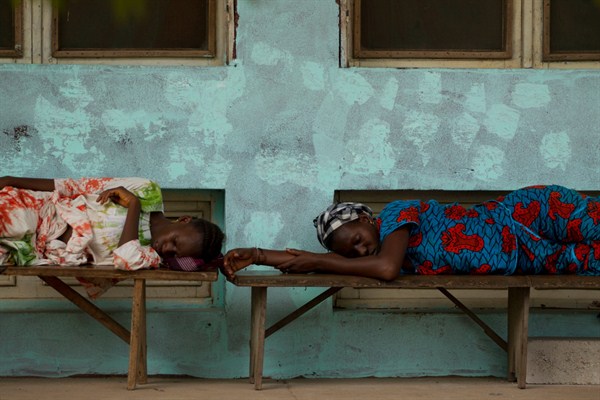Patience is in short supply in Guinea-Bissau these days. More than a year and a half has passed since President Jose Mario Vaz dismissed the government of Prime Minister Domingos Simoes Pereira, precipitating an extended political crisis. Four new prime ministers have been appointed since then, but the parliament has not been meeting, meaning one of the world’s least-developed and most chronically unstable countries—with a ranking of 178 out of 188 on the United Nation’s Human Development Index—has been unable to pass laws or a budget.
Last September, politicians agreed to a six-point roadmap out of the crisis. The following month, talks overseen by Alpha Conde, president of neighboring Guinea and mediator for the regional bloc ECOWAS, finalized an ambitious deal known as the Conakry Agreement that called for the formation of an inclusive government as well as security, justice and electoral reforms. But implementation of the deal has gone nowhere, and the possibility of any kind of near-term breakthrough seems remote.
“None of the national political actors nor the international community believe in the agreement,” says sociologist and researcher Miguel de Barros. He adds that Vaz has shown signs of wanting to maintain the status quo until the next presidential vote in 2019, in hopes that it will facilitate his re-election.

